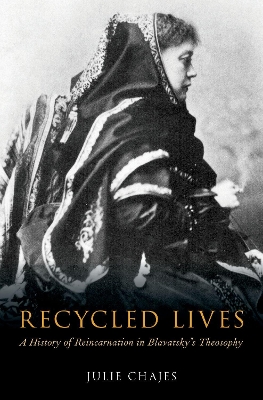Oxford Studies in Western Esotericism
1 total work
A sizeable minority of people with no particular connection to Eastern religions now believe in reincarnation. The rise in popularity of this belief over the last century and a half is directly traceable to the impact of the nineteenth century's largest and most influential Western esoteric movement, the Theosophical Society. In Recycled Lives, Julie Chajes looks at the rebirth doctrines of the matriarch of Theosophy, the controversial occultist Helena
Petrovna Blavatsky (1831-1891). Examining her teachings in detail, Chajes places them in the context of multiple dimensions of nineteenth-century intellectual and cultural life. In particular, she explores Blavatsky's readings (and misreadings) of Spiritualist currents, scientific theories, Platonism, and Hindu
and Buddhist thought. These in turn are set in relief against broader nineteenth-century American and European trends. The chapters come together to reveal the contours of a modern perspective on reincarnation that is inseparable from the nineteenth-century discourses within which it emerged, and which has shaped how people in the West tend to view reincarnation today.
Petrovna Blavatsky (1831-1891). Examining her teachings in detail, Chajes places them in the context of multiple dimensions of nineteenth-century intellectual and cultural life. In particular, she explores Blavatsky's readings (and misreadings) of Spiritualist currents, scientific theories, Platonism, and Hindu
and Buddhist thought. These in turn are set in relief against broader nineteenth-century American and European trends. The chapters come together to reveal the contours of a modern perspective on reincarnation that is inseparable from the nineteenth-century discourses within which it emerged, and which has shaped how people in the West tend to view reincarnation today.
